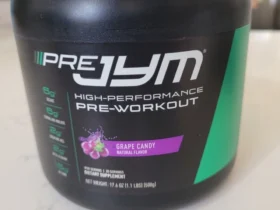What Are Optimal Protein Sources for Vegans?
Protein is an essential micronutrient for any healthy organism. It’s a well-known fact that optimal protein intake plays a crucial role in building muscles, but it’s no less important for healthy skin, hair, nails, eyesight, and even internal organs such as the brain and the heart.
Why Vegans Need to Pay Extra Attention to Their Protein Intake
Protein breaks down into amino acids that are essentially protein-building blocks. 9 of these amino acids are labeled as “essential” as a human body cannot produce them on its own and thus can only get them by consuming the right foods.
Most omnivores have no problem getting an adequate amount of protein and all the essential amino acids on a regular diet, as most animal-based products contain a certain amount.
For vegans, it can be a little more difficult. However, not nearly as impossible as omnivores like to preach. Plenty of plant-based foods can act as good protein sources. You just need to know where to start.
5 Best Vegan Protein Sources
An average man leading a sedentary lifestyle needs just about 55-60g of protein per day, and an average woman needs 45-50g. This number rises by about ⅓ for those who are physically active. In other words, the more physically active you are, the more attention you need to pay to your protein intake.
Including the following protein-dense vegan foods in your diet will help with fulfilling daily requirements:
1. Seitan
Seitan is known to be the most protein-dense vegan food currently on the market. 100g of seitan contains around 75g of protein – a daily norm of a physically active person. Seitan is made of wheat gluten, by washing the flour until starch is almost gone, and only gluten remains.
In other words, it’s basically a very stretchy, stiff dough.
While seitan doesn’t taste like much by itself, it acts as a perfect “transport” for various sauces and spices and is often used as a substitute for meat in various dishes.
2. Tofu
Tofu is another product often used as a meat substitute in various dishes, not unlike seitan. That said, it’s considerably lower in protein – 100g of tofu contains around 8g of protein.
While this may not seem impressive compared to seitan, it’s still one of the highest figures for plant-based products (besides, seitan contains more protein than actual beef, it’s hard to compete with).
Made out of coagulated soya milk, tofu is sometimes called bean curd. It’s formed by pressing the curd into solid white blocks and can vary from soft to very firm, depending on the method.
3. Legumes
Legumes are similar to tofu in their protein content, with around 7 to 10g of protein per 100g.
What makes legumes a particularly attractive option on a vegan diet are the variety and versatility. Almost all legumes are an optimal protein source and they can be used in a multitude of dishes.
Here’s a quick rundown of the most popular options:
- Beans (black-eyed, pinto, kidney, edamame, etc.) – contain around 7-10g of protein per 100g;
- Chickpeas (and thus hummus) – 7-8g of protein per 100g (tahini ups the protein content);
- Lentils (red, green, puy) – 7-9g of protein per 100g;

4. Quinoa
One of the most protein-dense seeds, 100g of cooked quinoa contains around 4g of protein.
While it may not sound particularly impressive compared to other items on the list, quinoa is known to contain all 22 amino acids, which makes it a particularly useful carbohydrate source on a vegan diet.
5. Vegan Protein Powder
If you have trouble incorporating a necessary amount of protein into your daily nutrition, then the best and easiest way to fulfill your daily protein norm is to include a serving of a vegan protein shake into your diet.
There are multiple options of high-quality vegan protein powders on the market these days – mainly made out of soy, pea, and hemp (and sometimes with brown rice). In an optimal case, a 25g serving of vegan protein powder should contain no less than 18-20g of protein.







